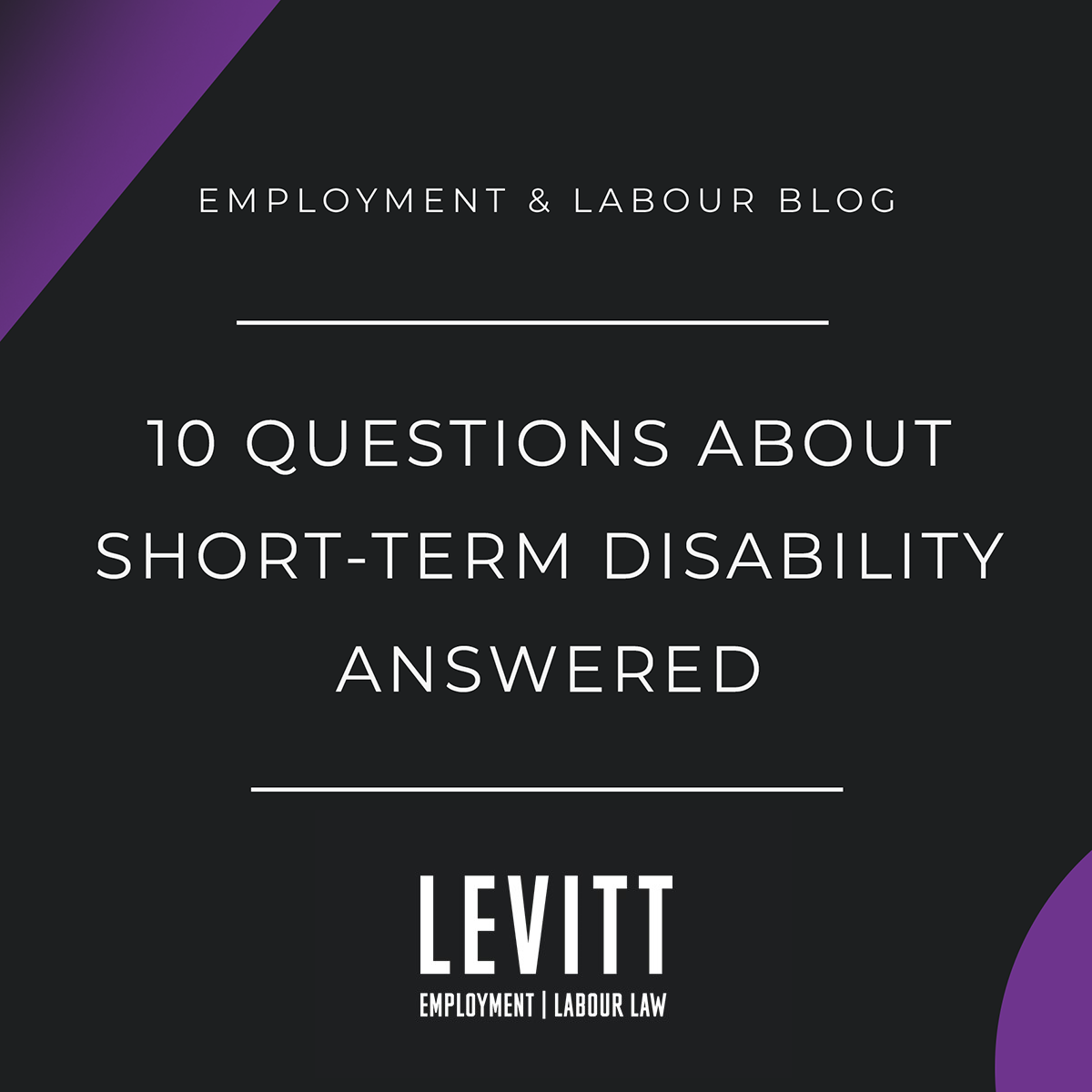Q: How much does long-term disability pay?
A: Most LTD plans will cover 60%-70% of your wages or base salary, but every plan is different.
Q: What qualifies as a long-term disability?
A: What qualifies as a long-term disability can vary depending on the insurance policy. In general, any illness or injury that affects your ability to carry out the main functions of your job should qualify you for benefits. Typically, the definition of disability changes at the two-year mark from you being unable to perform the essential elements of your “own occupation” to you being unable to perform the essential elements of “any occupation”. This change means you are unable, due to your disability, to do any job for which you are reasonably suited given your education, training, and experience. Most of the time if you cannot do your own job, you cannot do any job.
It is important to speak to our long-term disability team if you are denied benefits at the outset or your benefits are discontinued any point after being approved.
Q: Is long-term disability taxable income?
A: Generally, if you have an insurance policy for which you pay the premiums, then the payments you receive are not taxable. If the employer pays the premiums, the payments are taxable.
Q: Can you leave Canada while on long-term disability?
A: You are legally permitted to leave the country while on LTD. However, many insurance companies might perceive a vacation as a sign that you are not so disabled as you claim to be. If you do choose to leave the country, whether for a vacation or other reason, you should limit your activities to those that are consistent with your reported disability.
Q: How long does long-term disability last?
A: This depends on your policy, but generally LTD lasts until you are 65 years old.
Q: Do I need a doctor’s note for long-term disability?
A: Obtaining medical evidence to substantiate your insurance claim is critical. Most insurance providers will not approve your claim without medical evidence which shows that you are disabled and unable to work.
Q: How do I apply for long-term disability?
A: Ask your HR department for the application forms or go to your insurer’s website and download the forms yourself. The application requires three documents: the employee’s statement, the employer’s statement, and a physician’s statement.
Q: What happens if my claim is denied?
A: You can appeal the decision with your insurance company. However, appeals can drag on and you could be left without any income as insurance companies delay the process. Furthermore, when you appeal you do so through the insurance company’s own internal processes making it unlikely that your denial will be reversed. It is best to commence a legal claim against the insurance company. Contact one of our lawyers today if you have been denied benefits.
Q: When does long-term disability start?
A: LTD typically starts when short-term disability ends. Short-term disability typically lasts 15 weeks to 6 months depending on the policy. For more on defining disability click here (link to What’s the Difference Between Short-Term and Long-Term Disability). You should start the LTD application process near the end of the STD period to avoid an interruption to your income between benefit periods.
Q: Who pays for long-term disability?
A: LTD benefits are paid by your insurer.
Disclaimer: Insurance policies are all different. Although there are general rules that are followed, not all policies are exactly the same so it is important you check your policy or contact one of your lawyers today.
The information provided on this website does not, and is not intended to, constitute legal advice; instead, all information, content, and materials available on this site are for general informational purposes only.
No one should act, or refrain from acting, based solely upon the materials provided on this website, any hypertext links or other general information without first seeking appropriate legal or other professional advice.

